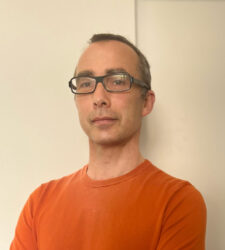Pharmacology & Molecular Mechanisms
Description
The Pharmacology and Molecular Mechanisms (PAMM) group aims to stimulate preclinical and clinical research in Europe in the fields of: pharmacology, pharmacokinetics, pharmacodynamics, pharmacogenetics, pharmacogenomics, molecular mechanisms of anticancer drug effects and drug-related molecular pathology. Many publications in these fields come from collaborations with PAMM and other EORTC groups.
A PAMM sub-committee on Drug Discovery focuses on identifying, evaluating and developing new anticancer agents. To assess potential drugs, the group’s academic scientists have access to a large range of in vitro and in vivo systems, including orthotopic and genetically-modified mouse models.
Each year, the PAMM organises a winter meeting. This conference is a multidisciplinary event where scientists and physicians meet to share data and develop collaborations to improve drug development and translational research that travels “from the lab to the bed side”. There are oral presentations on the best papers submitted.
Main Achievements
- Hosted our annual meeting virtually with nearly 100 participants and 19 worldclass experts who covered research topics from individualised therapy and pharmacokinetics to clinically relevant tumour models. New topics were explored including microbiome and immunetherapy, the role of extracellular vesicles in chemoresistance, and profiling of cancer-associated fibroblasts associated to prognosis.
- Members published 30 collaborative papers, which reflects our increasing exchange with other Groups including Gastrointestinal, Pathobiology, Lung Cancer and Brain Tumour Groups as well as the Pancreatic Cancer Task Force.
- Began collaboration with the multidisciplinary network, Stratagem COST Action, on ‘New diagnostic and therapeutic tools against multidrug resistant tumours’ with EORTC members from Groups in Italy, The Netherlands and Spain.
- Despite the pandemic, Group members welcomed several early-career investigators for collaborative translational projects to their laboratories and cancer centres including in France, Italy and Spain. Joint PhD projects are also ongoing with EORTC Groups in The Netherlands, Italy and Poland.
The PAMM is an integral part of EORTC’s Translational Research Division, delivering information for projects with other disease-oriented groups, particularly in early-stage developments. These publications demonstrate the PAMM’s contribution to developing other anticancer treatments. 
EORTC research in this field has led to the development and validation of temozolomide, one of the first anticancer agents that could cross the blood-brain barrier. Today, this drug combined with radiotherapy is the standard of care for Glioblastomas. (link to publication)
An EORTC study also demonstrated that the poor pharmacokinetic profile of E09 (eoquin, apaquizone) was an advantage in treating superficial bladder cancer. 
Another clinical trial led to the European approval of trabectedin, a naturally-occurring molecule, to treat soft-tissue sarcomas and ovarian cancer.
Research Group
Group Documents-
 Chair
ChairJoseph Ciccolini
Université de la Méditerranée Aix Marseille II
Marseille, France
-
 Treasurer
TreasurerAndrew D. Westwell
Cardiff University
Cardiff , United Kingdom
Scientific Committee
-
E. Chatelut - Toulouse, FR
/
Institut Universitaire du Cancer Toulouse Oncopole
-
J. Ciccolini - Marseille, FR
/
Université de la Méditerranée Aix Marseille II
-
E. Giovannetti - Amsterdam, NL
/
Vrije Universiteit University Medical Center
-
M. Hegi - Lausanne, CH
/
Laboratory of Brain Tumor Biology and Genetics – CHUV
-
G. Hempel - Münster, DE
/
Westfälische Wilhelms-Universität Münster
-
M. Joerger - St. Gallen, CH
/
Kantonsspital St. Gallen
-
B. Leyland-Jones - Stanford , GB
/
Stanford University School of Medicine
-
P. Perego - Milano, IT
/
Istituto Nazionale dei Tumori di Milano
-
R. Phillips - Huddersfield , GB
/
University of Huddersfield
-
C. Rolfo - Antwerp, BE
/
University Hospital Antwerp
-
A. Skladanowski - Gdansk , PL
/
Gdansk University of Technology
-
A. Westwell - Cardiff , GB
/
Cardiff University
Notable Publications
All publications on this research field-
2005
Down-regulation of DNA topoisomerase II alpha leads to prolonged cell cycle transit in G2 and early M phases and increased survival to microtubule-interacting agents
-
2005
Induction of unique structural changes in guanine-rich DNA regions by the triazoloacridone C-1305, a topoisomerase II inhibitor with antitumor activities
-
2005
Prognostic relevance of response evaluation using [18F]-2-Fluoro-2-Deoxy-D-Glucose positron emission tomography in patients with locally advanced non-small-cell lung cancer
-
2005
Potentiation of paclitaxel-induced apoptosis by the novel cyclin-dependent kinase inhibitor NU6140: A possible role for survivin down-regulation
-
2009
Vascular disrupting activity of tubulin-binding 1,5-diaryl-1H-imidazoles

